 Besides participating in the domestic circulation, Hong Kong is also actively strengthening cooperation with neighbouring regions such as ASEAN to facilitate the international circulation. The Chamber again hosted the Hong Kong Summit earlier, where minister-level government officials and business leaders from several countries jointly analyzed regional economic and trade cooperation and Hong Kong’s role in the post-pandemic new normal, as well as discussed how to promote in-depth regional cooperation through industrial innovation.
Besides participating in the domestic circulation, Hong Kong is also actively strengthening cooperation with neighbouring regions such as ASEAN to facilitate the international circulation. The Chamber again hosted the Hong Kong Summit earlier, where minister-level government officials and business leaders from several countries jointly analyzed regional economic and trade cooperation and Hong Kong’s role in the post-pandemic new normal, as well as discussed how to promote in-depth regional cooperation through industrial innovation.
Yuen Mo, the Chamber’s Chairman, believes that China’s advancement of the new “dual circulation” development paradigm will give important support for Hong Kong, the Mainland and the neighbouring regions to deepen economic interaction. He noted that the Central Government’s policies such as those to fully support Hong Kong in its efforts to thoroughly implement “One Country, Two Systems” will further consolidate and deepen the HKSAR’s role as a “super connector” between the Mainland and the rest of the world. Ren Hongbin, Chairman of the China Council for the Promotion of International Trade, said that Hong Kong can leverage the Central Government’s policies and measures, alongside projects such as Hong Kong’s Northern Metropolis, to facilitate innovative cooperation in various fields, thus injecting impetus into Hong Kong’s economic transformation.
Hong Kong can play an important bridging role
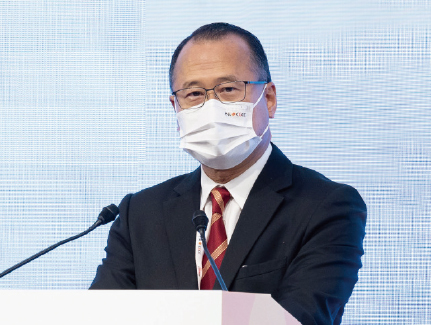
Jonathan Choi, the Chamber’s Permanent Honorary President and the Summit’s Chairman, stressed that Hong Kong should actively leverage its unique strengths to enhance the “C.I.O. 2.0” function in promoting regional cooperation, that is, to further enhance its role as a connector, investor and operator in the region to drive industrial cooperation. In particular, Hong Kong can serve as a bridge for trade and investment. He looks forward to Hong Kong joining the RCEP as soon as possible to promote the further integration of regional industrial chains.

John Lee: Start a new chapter for Hong Kong’s economy
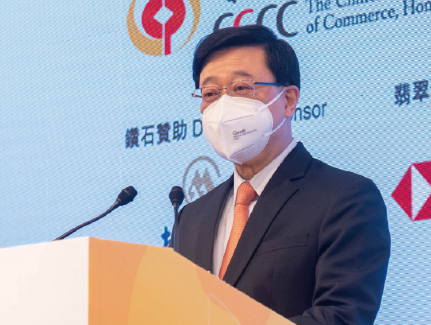
John Lee, Chief Executive of the HKSAR, said that Hong Kong will strengthen regional cooperation. He explained that the conclusion of the ASEAN-Hong Kong, China Free Trade Agreement (AHKFTA) has taken mutual economic ties to another level, and with Hong Kong already applied to join the RCEP and signed free trade agreements, member economies in the region will certainly enjoy more opportunities. Hong Kong will also continue to participate actively in the “Belt and Road” Initiative (B&R) to drive its long-term economic development.
The country will support Hong Kong in its effort to expand and facilitate closer exchanges with the rest of the world. Lee stressed that the HKSAR Government will accord top priority to fighting the epidemic, ensuring Hong Kong’s international competitiveness while safeguarding the health and safety of the public, and enhancing international connectivity while speeding up efforts to connect with the Mainland, thereby promoting the sustainable and steady development of Hong Kong’s economy.
Jin Liqun: Multilateralism remains very important
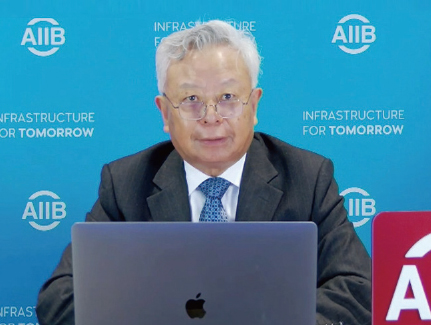
To cope with the COVID-19 and food challenges, Jin Liqun, President and Chair of the Board of Directors of the Asian Infrastructure Investment Bank (AIIB), believes that emerging opportunities in a new paradigm of regional cooperation also involve formulating sustainable financial, social and environmental solutions and innovating new development models so that vulnerable communities can also be cared for while ensuring that the general public benefit from investments and developments. Severe global supply chain disruptions due to the pandemic have led some countries to advocate self-sufficiency, but Jin does not think this is a viable solution. He stressed that multilateralism remains very important for development in the new era.
Regarding international cooperation and regional connectivity, Jin believes that Hong Kong, which boasts a pool of experienced financial and economic talents who are good at resolving commercial disputes, can offer a full range of financial and banking services. He especially noted that the AIIB and Hong Kong have always had a strong cooperative relationship. He looks forward to Hong Kong continuing to drive cooperation projects in different countries and different fields in the region, while the AIIB focuses on providing funds to countries in need to alleviate difficulties and carry out public infrastructure projects.
RCEP Helps Foster In-depth Regional Cooperation
Algernon Yau: Hong Kong has always embraced free trade
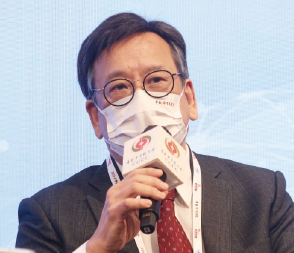
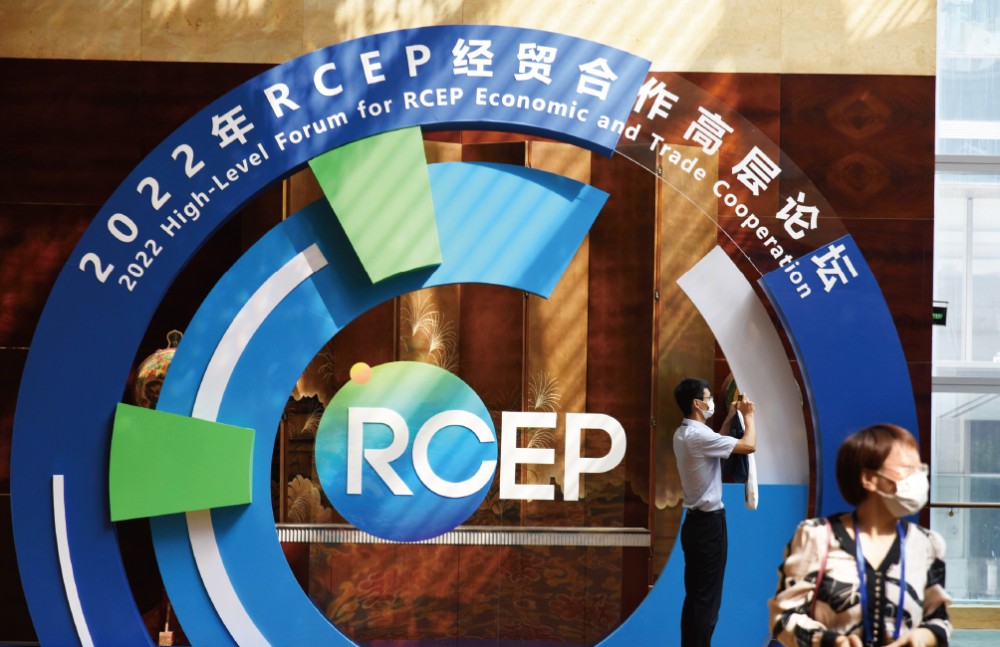 Algernon Yau, Secretary for the Commerce and Economic Development of the HKSAR, said that Hong Kong, which has always embraced free trade, is committed to promoting regional economic and trade cooperation. Given the Central Government’s full support, Hong Kong should leverage the “One Country, Two Systems” policy and the “14th Five-Year” Plan to actively tap into new business opportunities.
Algernon Yau, Secretary for the Commerce and Economic Development of the HKSAR, said that Hong Kong, which has always embraced free trade, is committed to promoting regional economic and trade cooperation. Given the Central Government’s full support, Hong Kong should leverage the “One Country, Two Systems” policy and the “14th Five-Year” Plan to actively tap into new business opportunities.
Yau said that Hong Kong has officially applied to join the RCEP which is a major milestone in regional cooperation. He is pleased to see that most RCEP member countries support Hong Kong’s accession, which will not only help expand the space for Hong Kong’s economic and trade development, but also further regional economic and trade cooperation.
Jerry Sambuaga: Welcome more members to the RCEP
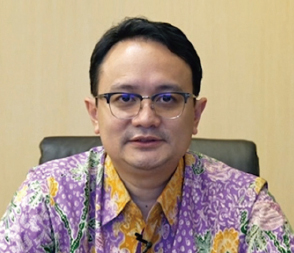
Jerry Sambuaga, Vice Minister of Trade of Indonesia, noted that ASEAN countries are actively using the Free Trade Agreement between Hong Kong, China and the ASEAN to strengthen economic and trade ties with Hong Kong. Hong Kong was ASEAN’s 5th largest source of foreign direct investment in 2021, and there is still plenty of room for development to be explored.
Indonesia will finish ratifying the RCEP in 2022, and Sambuaga believes that the agreement will help expand trade and investment among member countries. He stressed that Indonesia welcomes more new members, including Hong Kong’s accession to the RCEP, which is set to further promote regional cooperation.
Lim Ban Hong: RCEP and Greater Bay Area reinforce each other
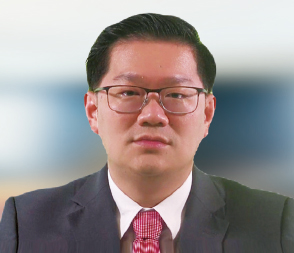
Referring to China’s “dual circulation” development paradigm, Lim Ban Hong, Deputy Minister of International Trade and Industry of Malaysia, believes that the emerging industries it encourages coincide with those promoted by Malaysia’s investment policy, and business cooperation between Hong Kong and Malaysia will usher in unlimited business opportunities.
Lim noted that as the Guangdong-Hong Kong-Macao Greater Bay Area (Greater Bay Area) strives to promote innovation and technology (I&T), along with the development of the RCEP, there will be reduction in transaction costs and improvement in efficiency. He hopes that through Hong Kong’s business connections with the rest of the world, the strengths of Malaysia’s business ecosystem can be used to drive further cooperation in the region in the new era.
Do Thang Hai: Aim to strengthen economic and trade relations with East Asian economies
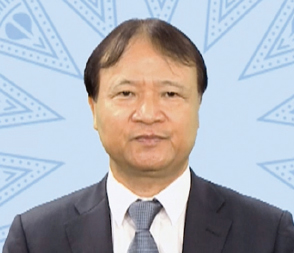
Do Thang Hai, Vice Minister of Industry and Trade of the S. R. Vietnam, stressed that Vietnam and Hong Kong could further facilitate cross-border economic and trade relations between ASEAN and East Asian economies if they can complement each other.
Do also put forward the following suggestions on how to strengthen regional cooperation: First, ensure the smooth operation of regional supply chains and resume tourism and business activities; second, collaborate to promote regional trade and investment, and exchange investment and business experiences; third, provide stronger financial and technical support to SMEs in the region; and fourth, the HKSAR Government may consider offering support to Vietnamese companies investing in Hong Kong, especially by improving visa arrangements.
Veeris Ammarapala: RCEP opens up broad space for Hong Kong-Thailand cooperation
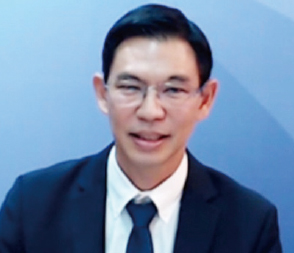
Veeris Ammarapala, Governor of the Industrial Estate Authority of Thailand, expects wider space for cooperation between Hong Kong and Thailand driven by the B&R and the RCEP.
According to Ammarapala, Thailand currently has 66 industrial villages in 16 provinces. In addition, there will be a port, a high-speed rail and a new airport as part of the plan for Thailand’s Eastern Economic Corridor (EEC), which is 150 km from Bangkok. Referring to the prospects for cooperation between the Greater Bay Area and Thailand, he believes that investment opportunities in different industries such as manufacturing, construction and services can be strengthened through the RCEP, and he very much welcomes companies from the Greater Bay Area to invest in Thailand.
Isamu Wakamatsu: Japan attaches great importance to regional cooperation
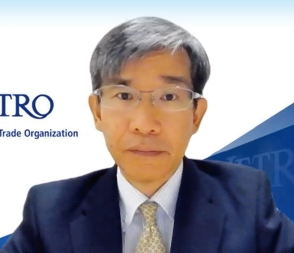
Isamu Wakamatsu, Director-General of the Overseas Research Department of the Japan External Trade Organization (JETRO), said that the RCEP is of great significance for Japan’s economic and trade development as it is its first free trade agreement with the Mainland and South Korea, and 60% of Japanese companies have operations in RCEP member countries.
He stressed that besides the RCEP, Japan is also committed to promoting the Indo-Pacific Economic Framework and the Comprehensive and Progressive Agreement for Trans-Pacific Partnership to create a stable business environment for businesses. He said that Japanese companies look to Hong Kong and the Mainland lifting or easing restrictions on travel with Japan, the Mainland adjusting its dynamic zero-infection policy against COVID-19 and resuming normal cross-boundary logistics operations with Hong Kong, and Hong Kong continuing to roll out measures to stimulate economic growth.
Industrial Innovation Forges In-Depth Regional Cooperation
Sun Dong: Strive to develop into a technological innovation hub
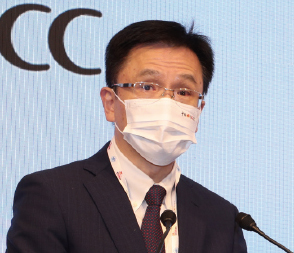
 The “14th Five-Year” Plan indicates clear support for Hong Kong’s development into an international I&T hub. Sun Dong, Secretary for Innovation, Technology and Industry of the HKSAR Government stressed that the Government will work with other Greater Bay Area cities to strengthen R&D and industrial innovation, and through various funding schemes, nurture and retain talents in Hong Kong, as well as actively attract domestic and overseas scientific research talents and R&D groups to Hong Kong, striving to develop Hong Kong into a global hub for technological innovation.
The “14th Five-Year” Plan indicates clear support for Hong Kong’s development into an international I&T hub. Sun Dong, Secretary for Innovation, Technology and Industry of the HKSAR Government stressed that the Government will work with other Greater Bay Area cities to strengthen R&D and industrial innovation, and through various funding schemes, nurture and retain talents in Hong Kong, as well as actively attract domestic and overseas scientific research talents and R&D groups to Hong Kong, striving to develop Hong Kong into a global hub for technological innovation.
As I&T not only drives the development of new economic sectors, but also promotes the upgrading and transformation of traditional industries, Sun reiterated that the Government will not follow the traditional path in driving re-industrialization. Instead, it will support the development of high-end manufacturing and accelerate industrial diversification to boost Hong Kong’s economic growth.
Ma Jun: Transition finance is a future focus

Ma Jun, Chairman and President of the Hong Kong Green Finance Association, said that China has always been deeply involved in G20’s international cooperation in green finance. China initiated the formation of the G20 Green Finance Study Group in 2016, and a major consensus has been reached this year to set up the G20 Transition Finance Framework. He added that transition finance, a new business domain, transitions high-carbon industries into low-carbon ones mainly through advanced green technologies, and is a very important new field of international cooperation.
Hong Kong is now one of the largest green financial markets in Asia. Ma credits the Government for doing much to stimulate this area, including issuing green bonds and offering a lot of incentives. Going forward, it should strengthen disclosure and drive product innovation in green finance and transition finance.
Jing Liu: Digitization is a future economic growth driver

Jing Liu, Chief Economist, Greater China, Global Research, HSBC, said that the definition of digital economy has become broader in recent years and many countries are pushing for economic digitization, which is a reflection that this will be a very important driving force for economic growth in the future.
The Mainland’s digital economy has also grown rapidly in the past decade. Liu pointed out that digital economic development will break new grounds if technologies are effectively applied to traditional industries. Hong Kong and the rest of the Greater Bay Area can strive to boost Industry 4.0 development and further drive related development.
Nisa Leung: Mainland is at the forefront globally in healthcare technology
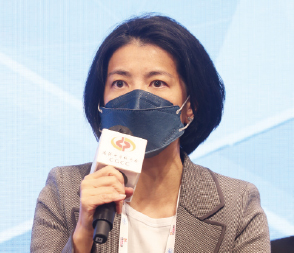
The Mainland has a huge healthcare market, with many Chinese cities currently looking to becoming leaders in biopharmaceuticals. Nisa Leung, Managing Partner of Qiming Venture Partners, said that the Mainland has made continuous progress in healthcare technology R&D, and today it is already on par with the US in this area. She said further that the Mainland’s innovative drugs have received recognition from major international pharmaceutical companies, and coupled with the Mainland’s low costs of healthcare technology development, treatment costs are greatly reduced to benefit more patients across the world.
Healthcare is one of the key industries in the Greater Bay Area. In Leung’s view, Hong Kong’s first-class medical research centres and hospitals, along with the Government’s various support measures, are well-placed to attract more biotechnology companies to get listed in Hong Kong, thus boosting the development of related industries.
Don So: Greater Bay Area has a huge healthcare market

Don So, Head of Business Incubation of New World Development Company Limited and CEO of Humansa, noticed that Greater Bay Area residents are generally paying increasing attention to the health of themselves and their families due to the pandemic. As a result, they have a growing demand for healthcare, and nearly 70% of their healthcare spending is used for disease prevention.
However, So noted that the lack of mutual coordination and the fragmented provision of services in the healthcare industry are making it inconvenient for the residents, and the public generally chooses reputable service providers. He stressed that the healthcare service industry must move towards innovation to raise efficiency through digitization, and focus on disease prevention to reduce medical expenditures.
Tim Leung: Leverage AI for industrial upgrading and transformation
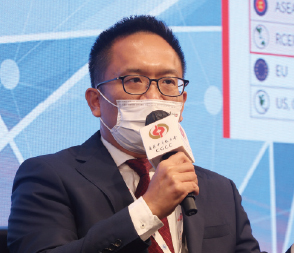
As AI is widely used in daily life, Tim Leung, Group Chief Technology Officer of Tricor Group, believes that AI is changing people’s way of life.
Many processes and services in the Mainland are now substantially paperless and digitized. Leung said that Hong Kong should also make full use of mature AI and cloud technologies to further provide service value and gradually drive upgrading and transformation. He added that Hong Kong should devote more resources to the development of financial data analysis, thus achieving the goal of automation to improve operational efficiency.
Don Lam: Vietnam will herald a golden era of population
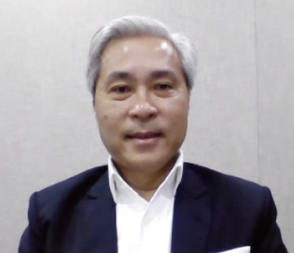
Don Lam, CEO and Founding Partner of VinaCapital Group of Vietnam, said that Vietnam is about to herald a golden era of population, with half of its population under 35 years of age, a third of its population in the middle class, and a literacy rate of 95%. It is also actively moving towards digitization, especially to address several pain points of some traditional industries through technology.
Vietnam’s venture capital industry will grow rapidly. Lam said that the investment ecosystem in Southeast Asia has produced a cluster effect, with transactions expected to reach USD70 billion and 60% of investments concentrated in technology-related industries over the next five years.




